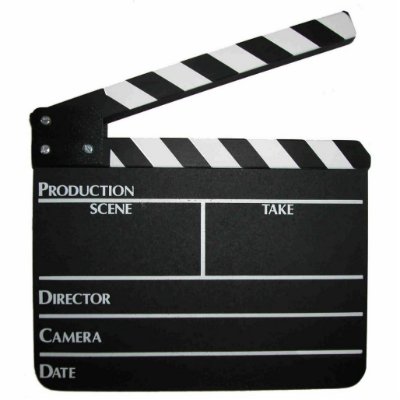By now, you've probably heard a lot about Christopher Nolan's Inception. I saw the movie on opening weekend, walking into the theater with no more knowledge of the movie's plot than I had gleaned from the trailers, and I - along with the rest of the packed house - loved it. I've since read mixed reviews. I won't go into the criticisms of its detractors here: instead, here are three things I think Nolan did right, and why Hollywood should take a page from the Inception book.
Warning: mild spoilers ahead!
1) Original content.
It's true that Inception pays tribute to many cinematic influences; Nolan admits in a recent Entertainment Weekly article that he was inspired by "everything from Stanley Kubrick ...[to] James Bond." The twisty plot and surreal atmosphere recall not only earlier Nolan works, like Memento, but also movies like The Matrix, Fight Club, and Ocean's Eleven. Fundamentally, though, it is original. New stories are increasingly rare in the world of large studio pictures, and so creativity well-executed is something to be prized. Inception is not a sequel, a remake, or a book adaptation. It is thoroughly engaging and smart: not David Lynch-ian in its brain-bending, but requiring a certain level of attention to understand. Nolan's approach is one that more directors - and executives - should adapt. There is always a place for nostalgia in moviegoers' hearts, but there also remains a fundamental appreciation for good storytelling that is too often discounted or ignored.
2) A fantastic - and surprising - cast.
Leonardo DiCaprio continues to knock pretty much everything out of the park. He takes a challenging role in Inception and manages to give it some amount of emotional resonance, even though it's clear that there is little time to flesh out backstory or develop credible emotions in the roller coaster ride of this movie. At the same time, he excels in the lighter moments; his apparent relish for the heist-movie atmosphere is reminiscent of another of his most enjoyable roles, that of the lead in the 2002 caper Catch Me If You Can. Joseph Gordon-Levitt, another former child actor with a history of interesting roles, is also well-cast; he has great chemistry with DiCaprio and transitions as effortlessly between different genres as his character does between dream levels. Finally, I was really blown away by Tom Hardy, whose work was heretofore unknown to me. It's true that I am always a sucker for a British accent and a smartass criminal character, so I likely would have enjoyed his character no matter what, but Hardy's charisma was strong enough that he stole many - if not all - of his scenes out from under all of the big names. That's no easy feat in a movie like Inception. I look forward to seeing much more of him in the future.
3) A lack of spoilers.
One of the most effective things about Inception was that the audience had little to no idea of the plot of the movie before its release. I had seen a few previews, and they left me almost completely clueless. Keeping the plot of a movie a secret - and, more particularly, choosing to reserve some of the most spectacular scenes for the film, rather than releasing them in the trailers - is almost unheard of now. It's far more common to see previews that border on exhaustive; I can't tell you how many mediocre movies I've seen that ruined any enjoyment I might have felt at the few bright spots by playing those moments over and over before I even watched the film. There are some movies, of course, with such a wealth of great material (think of Superbad, for instance) that the previews, funny in and of themselves, may contain scenes that don't even appear in the finished product. And others are so hopelessly terrible that there's no way seeing the previews could spoil anything about the movie. But on the whole, at least for highly anticipated films, I'd like to suggest that Hollywood call for a moratorium on spoiler-heavy previews. Trust your movies. Trust the audience. It'll be so much more fun this way.
Photos are the property of Warner Bros. Pictures.




Oh man, #3. I cannot tell you how many times I've watched a trailer and thought, 'Well, I guess I don't need to see the movie now.' ('Charlie St. Cloud' is a recent offender - not that I wanted to see 'Charlie St. Cloud.') Trailers are supposed to pique the audience's interest, not tell the entire story. You wouldn't think that it would be so hard to draw that line, but the bad trailers keep on coming.
ReplyDelete